Filter by

A Grammar of the Somali Language With Examples in Prose and Verse, and an Ac…
Somali is one of the Cushitic family of languages spoken in the horn of Africa and the official language of Somalia. This practical grammar, published in 1905, was prepared by J. W. C. Kirk, who first learnt to speak the language during his service with Somali troops during the British Empire's failed attempt in 1902–1904 to wrest control of the region from the Dervish state under Muhammad Ab…
- Edition
- -
- ISBN/ISSN
- 9780511708671
- Collation
- -
- Series Title
- Cambridge Library Collection - Linguistics
- Call Number
- -
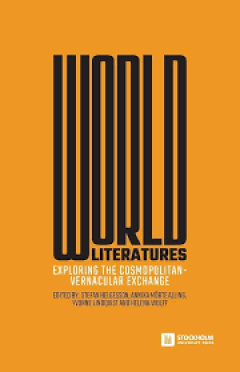
World Literatures Exploring the Cosmopolitan-Vernacular Exchange
"Placing itself within the burgeoning field of world literary studies, the organising principle of this book is that of an open-ended dynamic, namely the cosmopolitan-vernacular exchange. As an adaptable comparative fulcrum for literary studies, the notion of the cosmopolitan-vernacular exchange accommodates also highly localised literatures. In this way, it redresses what has repeatedly been i…
- Edition
- -
- ISBN/ISSN
- 9789176350782
- Collation
- -
- Series Title
- -
- Call Number
- -
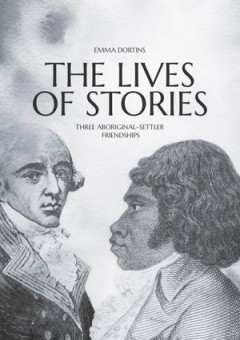
The Lives of Stories: Three Aboriginal-Settler Friendships
The Lives of Stories traces three stories of Aboriginal–settler friendships that intersect with the ways in which Australians remember founding national stories, build narratives for cultural revival, and work on reconciliation and self-determination. These three stories, which are still being told with creativity and commitment by storytellers today, are the story of James Morrill’s adopti…
- Edition
- -
- ISBN/ISSN
- 9781760462406
- Collation
- -
- Series Title
- -
- Call Number
- 994 DOR l
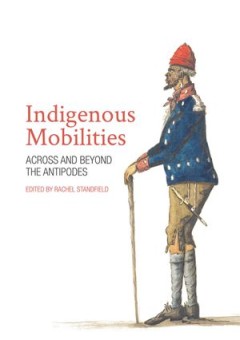
Indigenous Mobilities: Across and Beyond the Antipodes
This edited collection focuses on Aboriginal and Māori travel in colonial contexts. Authors in this collection examine the ways that Indigenous people moved and their motivations for doing so. Chapters consider the cultural aspects of travel for Indigenous communities on both sides of the Tasman. Contributors examine Indigenous purposes for mobility, including for community and individual econ…
- Edition
- -
- ISBN/ISSN
- 9781760462147
- Collation
- -
- Series Title
- -
- Call Number
- 911 IND i
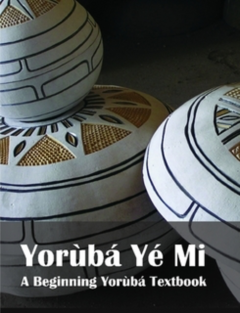
Yorùbá Yé Mi : A Beginning Yorùbá Textbook
The Yorùbá Yé Mi textbook, combined with an open access, multi-media website, is an interactive, communicative, introductory Yorùbá program. It provides college/university students with basic listening, speaking, reading and writing skills of language learning in Yorùbá. It exposes the learner not only to Yorùbá language in meaningful situations but also to the culture of the Yorùbá-…
- Edition
- -
- ISBN/ISSN
- 9781937963026
- Collation
- -
- Series Title
- -
- Call Number
- 400 MOS y
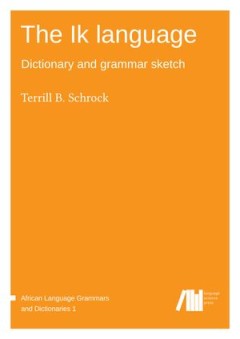
The Ik language : Dictionary and grammar sketch
This book is a dictionary and grammar sketch of Ik, one of the three Kuliak (Rub) languages spoken in the beautiful Karamoja region of northeastern Uganda. It is the lexicographic sequel to A grammar of Ik (Icé-tód): Northeast Uganda’s last thriving Kuliak language (Schrock 2014). The present volume includes an Ik-English dictionary with roughly 8,700 entries, followed by a reversed English…
- Edition
- Vol. 1.0
- ISBN/ISSN
- 9783944675961
- Collation
- -
- Series Title
- African Language Grammars and Dictionaries 1
- Call Number
- 400 SCH i

Pursuing Justice in Africa Competing Imaginaries and Contested Practices
Pursuing Justice in Africa focuses on the many actors pursuing many visions of justice across the African continent—their aspirations, divergent practices, and articulations of international and vernacular idioms of justice. The essays selected by editors Jessica Johnson and George Hamandishe Karekwaivanane engage with topics at the cutting edge of contemporary scholarship across a wide range…
- Edition
- -
- ISBN/ISSN
- 9780821446485
- Collation
- -
- Series Title
- -
- Call Number
- -

A Geographical Survey of Africa Its Rivers, Lakes, Mountains, Productions, S…
James MacQueen (1778–1870) was a British geographer and also one of the most outspoken critics of the methods of the British anti-slavery campaign in the 1820s and 1830s. Although he never visited Africa, he became an acknowledged expert on the continent, through reading all available accounts, ancient and modern, as well as interviewing slave merchants while managing a sugar plantation in th…
- Edition
- -
- ISBN/ISSN
- 9781139034562
- Collation
- -
- Series Title
- Cambridge Library Collection - African Studies
- Call Number
- -

A Geographical and Commercial View of Northern Central Africa
James MacQueen (1778–1870) was a British geographer fascinated by the problem of the River Niger. He set out to try to establish (on the basis of accounts by explorers, traders and missionaries), that one and the same river flowed continuously through Africa and into the Atlantic Ocean, thus challenging long-established beliefs that African rivers either disappeared into the sand or terminate…
- Edition
- -
- ISBN/ISSN
- 9781139034579
- Collation
- -
- Series Title
- Cambridge Library Collection - African Studies
- Call Number
- -
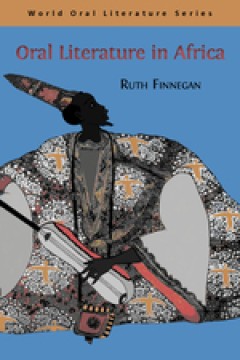
Oral Literature in Africa
Ruth Finnegan’s Oral Literature in Africa was first published in 1970, and since then has been widely praised as one of the most important books in its field. Based on years of fieldwork, the study traces the history of storytelling across the continent of Africa.
- Edition
- -
- ISBN/ISSN
- 9781906924720
- Collation
- -
- Series Title
- World Oral Literature Series volume 1
- Call Number
- 800 FEN o
 Computer Science, Information & General Works
Computer Science, Information & General Works  Philosophy & Psychology
Philosophy & Psychology  Religion
Religion  Social Sciences
Social Sciences  Language
Language  Pure Science
Pure Science  Applied Sciences
Applied Sciences  Art & Recreation
Art & Recreation  Literature
Literature  History & Geography
History & Geography